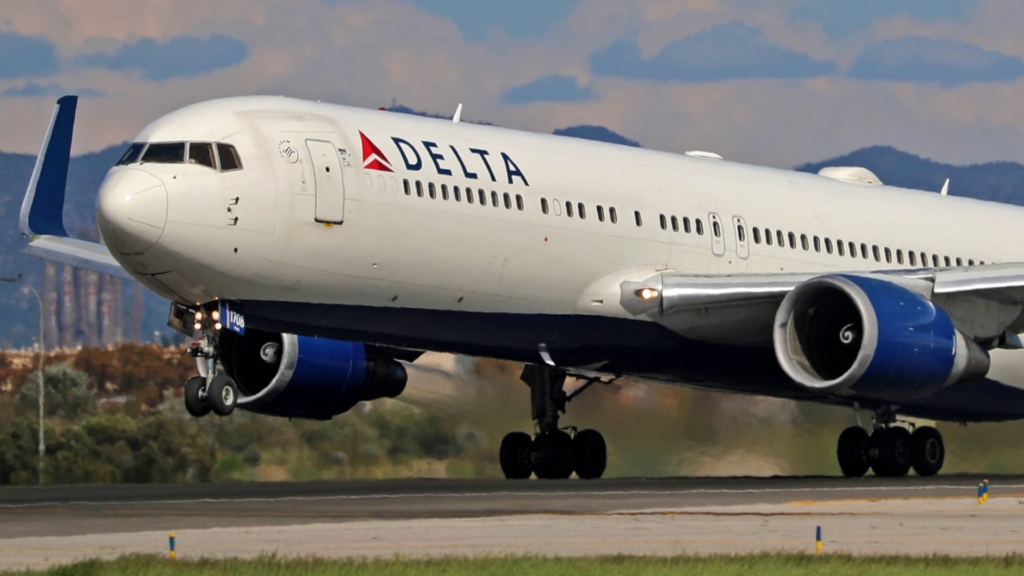The airline industry is currently facing a series of troubling indicators, including decreased travel from Canada, signs of reduced demand in transatlantic routes, significant government workforce reductions, ongoing tariffs, and a visible pullback from consumers in making travel reservations. This confluence of factors has contributed to the steepest decline in stock market fortunes for the airlines since 2020.
Analysts predict that U.S. airlines will lower their forecasts for 2025 during their earnings reports commencing this week, citing a weakening demand for travel—something consumers had consistently prioritized despite the challenges posed by inflation.
“Things are clearly softer than they were back in January,” noted Savanthi Syth, an analyst at Raymond James, in conversation with Finance Newso.
Delta Air Lines recently lowered its predictions for the first quarter, pointing to disappointing corporate and leisure travel bookings. Alongside this, both American Airlines and Southwest Airlines have adjusted their forecasts for the first half of the year.
As a result, airline stocks have continued to decline amid growing fears regarding lower demand linked to government policies, including new broad tariffs implemented at rates of at least 10%.
“The scale of the sell-off is more severe than what the current situation justifies, but it raises concerns about what could happen six months down the line,” Syth remarked.
Wall Street analysts have significantly reduced their price targets and downgraded ratings for U.S. airlines, including Delta, which has been deemed the most profitable carrier in the country. Despite its success with higher-income travelers purchasing premium seating, the airline industry is grappling with a shifting economic landscape.
However, experts do not foresee a repeat of the travel collapse witnessed at the beginning of the pandemic in 2020, when global flight demand plummeted as countries enforced border closures. While demand remains present, it is exhibiting signs of distress akin to trends in other sectors.
Delta is set to be the first U.S. airline to disclose its quarterly financial results, scheduled for release before the market opens on Wednesday.
Year-to-date, airline stock values have faced considerable setbacks. Delta’s stock has decreased by more than 38%, while American Airlines has experienced a decline exceeding 45%, and United Airlines’ shares have fallen by over 40% in 2025.
The ongoing shift in consumer sentiment is striking, particularly for the travel industry, which had previously seen robust demand for international destinations following the pandemic. Many consumers have opted for experiences—such as extended trips in Japan or holidays in Portugal—over traditional retail purchases.
Emerging trends indicate a decline in international travel along with diminished bookings from Canada across U.S.-Europe routes. Bookings for the period spanning June to August are reported to be approximately 13% lower than last year, according to Cirium, a firm specializing in aviation data, though it highlighted that these statistics derive from online travel agencies and may not reflect direct airline site bookings.
Concerns among analysts remain palpable.
“We foresee a landscape characterized by slower growth, persistent inflation, and a more isolationist stance from the U.S. that could disrupt the airline competitive environment,” TD Cowen stated on Friday. “We worry that this new economic framework could lead to a significant downturn in corporate travel, compounded by a negative wealth effect that might decrease consumer spending, especially among Baby Boomers.”
Last week, the Bank of America Institute remarked that the recent dip in consumer confidence might be causing potential travelers to hesitate in making bookings or even to scale back their travel plans. External factors, such as inclement weather and a later Easter this year, could also be influencing these trends.
Airline executives have noted a decline in government-related travel, which, while accounting for a small fraction of overall business, contributes substantially to revenue. Executives will likely face inquiries during earnings calls this month regarding repercussions from corporate layoffs at firms like consulting giant Deloitte.
Another key query will focus on the durability of premium travel demand. Syth indicated that while business class may remain popular, airlines might have to boost demand through enticing frequent flyer rewards.
“Passenger cabins may be occupied, but the question stands: how profitable will it be?” she remarked.


























